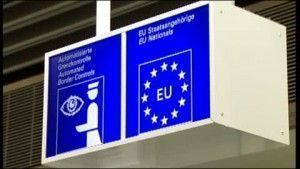Europe’s Tourism Stakeholders Call for Smarter EU Visa Policy
The EU Visa Policy was debated on Thursday by CLIA Europe, the association representing Europe’s cruise operators, and ECTAA, the confederation grouping Europe’s travel agents’ and tour operators’ associations.
Both associations have called on the EU to bring more flexibility to the EU Visa Code in order to facilitate the entry of legitimate tourists and travellers from third countries into Europe whilst maintaining the current high level of security.
Speaking at the European Tourism Forum, taking place in Luxembourg on 17-18 September under the auspices of Luxembourg’s EU Presidency, ECTAA and CLIA Europe called on the EU Member States to ensure a swift adoption of the proposed EU Visa Code, which they are currently debating.
“Burdensome and costly visa procedures are a deterrent to travelling to Europe. This has a direct impact on the economy in terms of lost visitor spending, business opportunities, employment creation, etc.”, Michel de Blust, ECTAA’s Secretary General, said.
“It is very important that the EU institutions recognise the socio-economic potential of a smart visa policy on tourism and the economy, and that they step up their on-going efforts to support the quick adoption of a truly smart European visa policy with clear, simple, accessible, affordable and effective visa processing rules”, he added.
 The European Commission’s legislative proposal to revise the EU Visa Code, which was presented in April 2014, aims to simplify current procedures for issuing short-stay visas within the Schengen Area.
The European Commission’s legislative proposal to revise the EU Visa Code, which was presented in April 2014, aims to simplify current procedures for issuing short-stay visas within the Schengen Area.
According to the Commission, existing bureaucratic bottlenecks within the current regime are keeping more than six million would-be tourists from third-countries from visiting the continent.
They are also making Europe be one of the world’s most restrictive regions in terms of visa requirements for foreign tourists, and diverting demand to destinations with an open or a less restrictive visa policy, such as the US.
As a consequence, the tourism industry in the Schengen area loses out on a potential 5.5 billion euro in direct contribution to GDP every year, adding up to approximately 113,000 jobs in the tourism sector.
According to Raphael von Heereman, CLIA Europe Secretary General, as competition from emerging markets continues to grow, Europe’s position as the world’s number one tourist destination is increasingly being questioned.
 “A smarter visa policy is required to increase third-country tourists from emerging countries such as China, India and Russia – all important potential source markets for the European cruise industry”, Mr von Heereman said.
“A smarter visa policy is required to increase third-country tourists from emerging countries such as China, India and Russia – all important potential source markets for the European cruise industry”, Mr von Heereman said.
He added that better realising the potential could help further expand Europe’s cruise industry and also allow the tourism sector to contribute even further to Europe’s economy, generating much-needed economic growth and employment during this crucial time of economic recovery.
“An effective Visa Code should also facilitate the entry and work of legitimate crew members that require short-stay visas to enter Schengen. This is fundamental to improve the way cruise lines operate in Europe”, CLIA Europe secretary general said.





